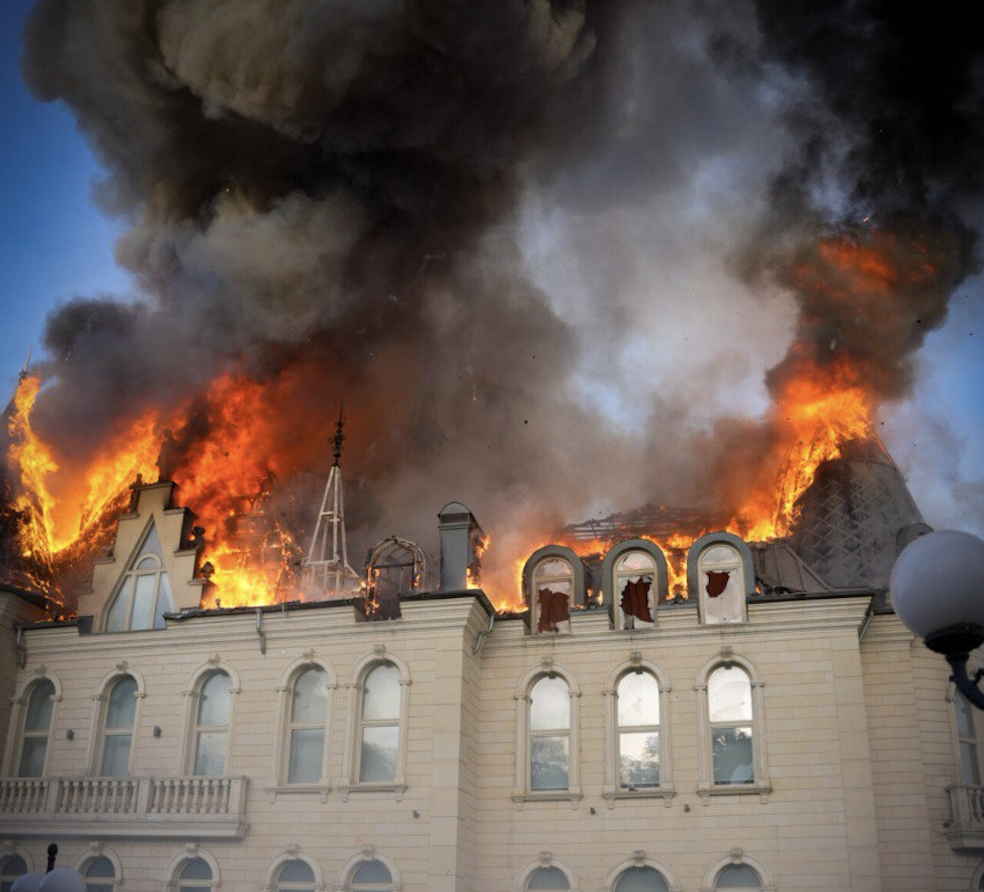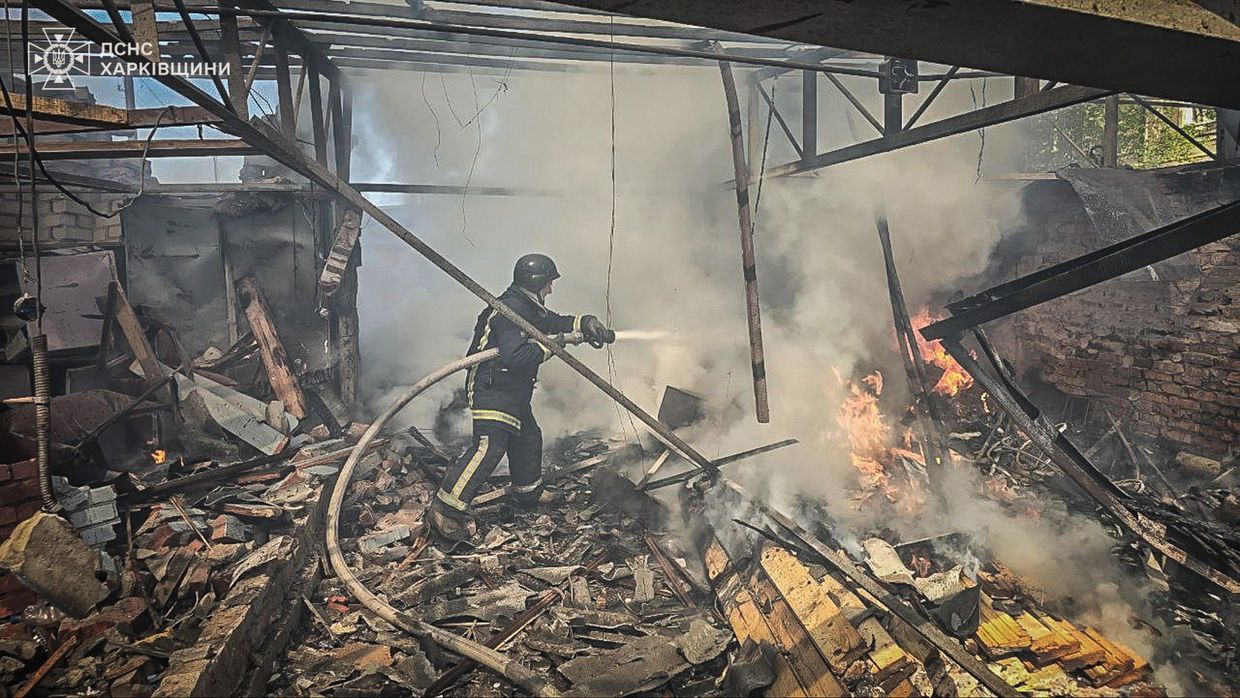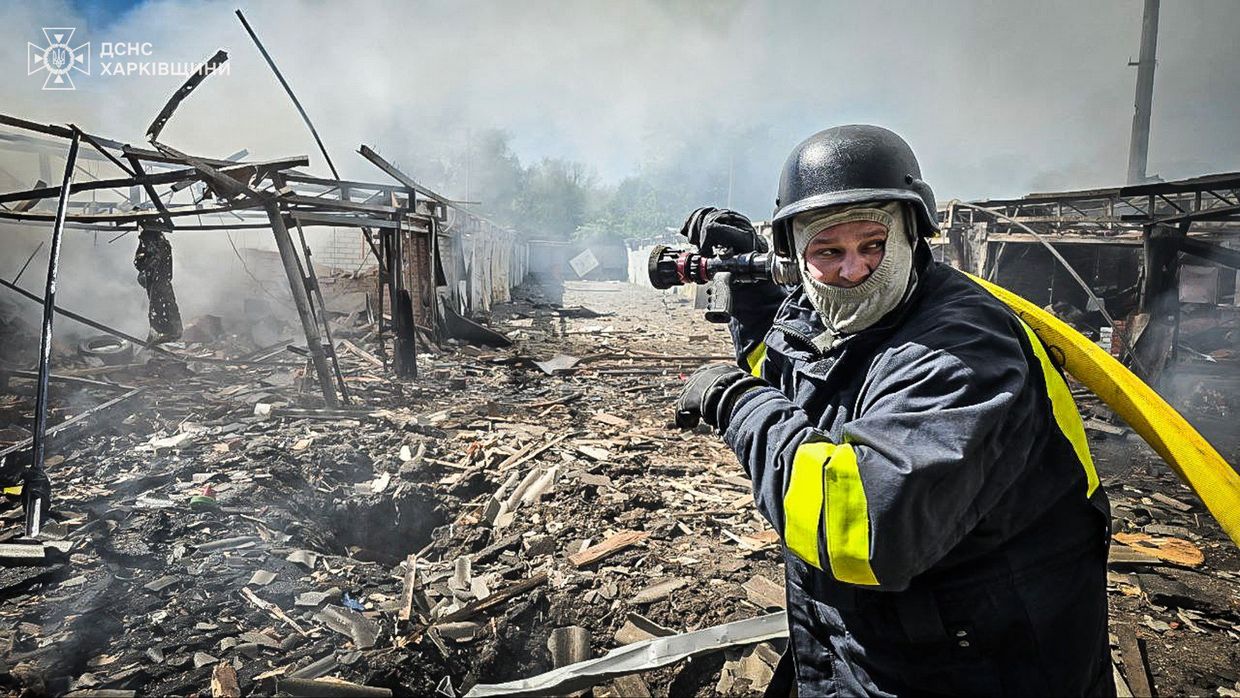Daily Flyer - April 30, 2024
A voice of Ukraine to the West

Russian strike on Odesa kills 5, injures around 30 - Update

At least five people were killed, and around 30 injured in a Russian missile strike on Odesa on April 29, according to local officials who spoke on April 30.
Oleh Kiper, the Odesa Oblast Governor, initially reported that a missile struck residential buildings and civilian infrastructure. He said, "Unfortunately, two people and a dog died as a result of the Russian missile attack." He noted that another eight people were injured, including a 12-year-old boy.
Later, on April 29, the State Emergency Service of Ukraine updated the figures, stating that the death toll had risen to four, with 32 injured, two of whom were children. Subsequently, a man in his 60s who was injured in the attack died in the hospital, increasing the death toll to five, according to Kiper's report on April 30.
By April 30, 23 people were still hospitalized, with eight in serious condition and four in critical state, including a four-year-old girl, according to Kiper.
Media reports indicated that one of the injured could be Serhiy Kivalov, a discredited ally of pro-Russian President Viktor Yanukovych who was ousted after the 2014 EuroMaidan Revolution. Kivalov, a former lawmaker and head of the Central Election Commission, reportedly lived in the house that was hit by the missile strike, as shown by the Suspilne media outlet.
President Volodymyr Zelensky, in a social media post, emphasized the need for more support from Ukraine's allies to counter "Russia's regular missile attacks, as well as the occupier's efforts to destroy as many Ukrainian positions as possible." He added that Russia's offensive plans could be thwarted, but that this required sufficient support from partners, including "Patriots," 155-mm caliber artillery ammunition, and weapons with enough range to disrupt Russian logistics.
Russian attack on Kharkiv killed 1, injured 9

A Russian strike on April 30 in Kharkiv's northeastern districts killed at least one person and injured at least nine others, according to Mayor Ihor Terekhov, who spoke on television.
Initially, authorities reported two deaths, but Terekhov clarified around 11:15 a.m. local time that previous reports of a second fatality had not been confirmed.
Russian forces targeted the Kyivskyi and Kholodnohirskyi districts, hitting residential areas, as reported by the mayor. Governor Oleh Syniehubov indicated that Russia likely used KAB aerial bombs in the attack. Later, the Kharkiv Oblast Prosecutor's Office detailed that three UMPB D-30SN glide bombs were used in the attack, with two aimed at the Kyivskyi district and one at the Kholodnohirskyi district.

In the Kyivskyi district, a powerful explosion caused significant damage to an administrative building and over 40 private garages, with three catching fire. The State Emergency Service reported that two civilian buildings were destroyed in the Kholodnohirskyi district.
These strikes come amid a recent intensification of Russian attacks against Ukraine's second-largest city, causing casualties and extensive damage to Kharkiv's energy infrastructure. The previous day, on April 29, Syniehubov reported that Russian forces bombed the Kyivskyi district, indicating a continued and growing threat to civilian areas and infrastructure.
Ukraine's government says it will not force Ukrainians to return from EU countries
Olha Stefanishyna, Ukraine's Deputy Prime Minister for European and Euro-Atlantic Integration, has made it clear that Ukraine will not forcibly repatriate military-age Ukrainian men from other countries. This was stated during an interview with the German international broadcaster DW, as well as in a report by European Pravda.
Stefanishyna underscored that providing personal information to enlistment offices doesn't mean automatic mobilization to the front line. Instead, she explained, Ukraine's mobilization law aims to manage the country's potential for recruitment. "This is about the potential of mobilization—the registry and information. And that is the primary goal of our decision," she noted.
Additionally, Stefanishyna mentioned that Ylva Johansson, the European Commissioner for Home Affairs and Migration, will visit Ukraine in May to discuss the future legal status of Ukrainians living abroad, given that the European Union's current temporary protection mechanism is set to expire in March 2025.
The deputy prime minister reassured that there will be no restrictions or forced returns of Ukrainian citizens, regardless of gender or age, to a war-torn country. However, she also highlighted the harsh reality of war, reminding that Ukraine must win. "So there will be no restrictions or forced returns of Ukrainian citizens of any sex or age to a country that is at war. But there are no pleasant solutions to war issues, and let's not forget that the war continues, and we must win it," she stressed.
Red Cross decides not to suspend the Russian branch despite links to the Kremlin
The International Red Cross Movement has decided not to suspend the Russian Red Cross, despite evidence of potential violations of the principles of neutrality and independence. This decision follows an investigation by a group of international media outlets that uncovered multiple infractions by the Russian Red Cross since the beginning of the full-scale invasion of Ukraine in February 2022.
According to The Guardian, which participated in the investigation, these violations include plans to fund Red Cross branches in Russian-occupied Ukrainian territories, indicating a lack of impartiality. The inquiry also revealed that some regional heads of the Russian Red Cross endorsed the need for a war against "Ukrainian Nazis" and that Red Cross workers in uniform participated in military training events for children.
Despite these findings, the International Federation of Red Cross and Red Crescent Societies (IFRC), which has the authority to suspend membership for violations of the Red Cross charter, opted against suspending the Russian Red Cross after a four-day meeting in Geneva. Instead, the IFRC decided to create an oversight body and urged the Russian Red Cross to address the identified problems and alleged violations.
Previously, the IFRC suspended the Belarusian Red Cross for similar breaches, demonstrating its willingness to take action when necessary. However, in this case, the IFRC chose a more measured approach by establishing oversight rather than outright suspension.
The investigation also highlighted that the Russian Red Cross signed a memorandum of cooperation with Artek, a youth camp in annexed Crimea where some children deported from Ukraine were sent. This association raises further concerns, as Konstantin Fedorenko, the head of Artek, is under U.S. and EU sanctions.
Despite the decision not to suspend the Russian Red Cross, the organization faces scrutiny and pressure to uphold the core values of the Red Cross Movement, emphasizing the importance of maintaining neutrality and independence in humanitarian work.

